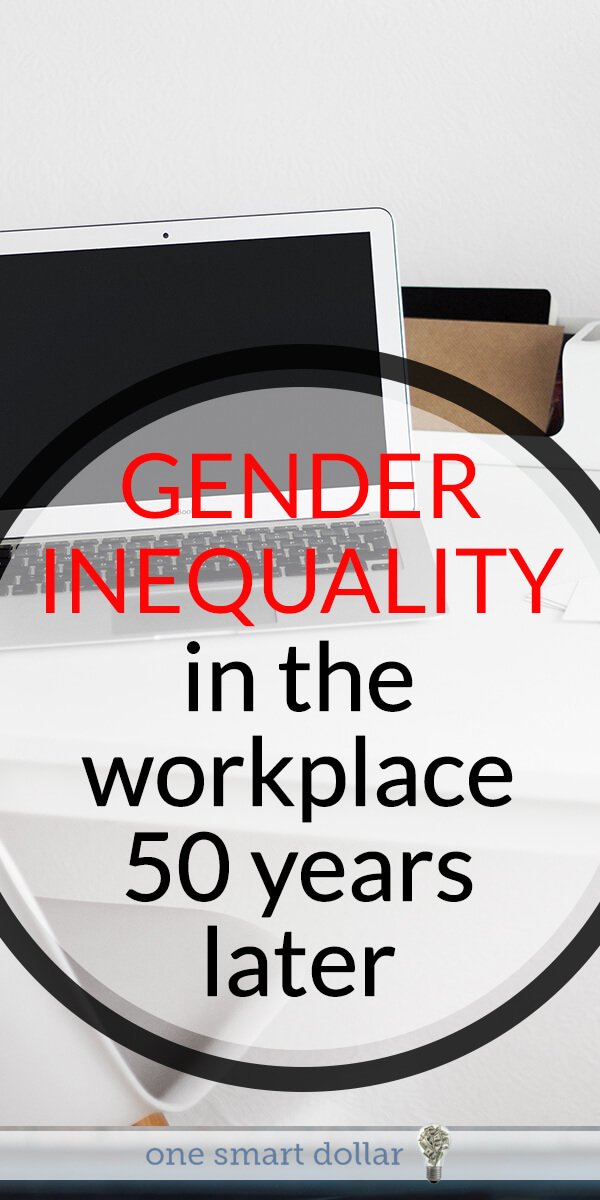
Right around 50 years ago, wage disparity became illegal. As society moves forward in seeing that everyone is equal and that equal jobs should get equal pay, we should think that now, half a century later, we have come to that. The sad fact is that there is still a gender inequality in the workplace. Women earn less than men even though they are doing the same job. To make matters worse, that gap is not small. It may be one thing that after 50 years we have narrowed it down to within a few percentage points of each other, but that is not the case. A recent study has found that women only make 77% of what men make.
Why the gender wage gap?
The gap exists simply due to a bigoted stance that the quality of work that a woman can perform is less than the quality that a man can perform. It was believed that women would not be able to work as hard, or accomplish as much, as a man. In light of that, they were paid less. Keep in mind that half a century ago there were a lot more manual labor jobs. So it may have been true that women in certain jobs cannot perform as much as a man for the reason that they are physically smaller than men. However, as technology has advanced, one’s physical fitness rarely has much of a factor in the job. Besides being physically different, there was (and most likely still is) the idea that women are inferior.
Why is there still a gap?
The attitudes toward the wage gap have changed, and it has closed considerably. But there are still those feelings that women cannot do as good of a job as a man in the workplace. Much of that stems from those high up in the chain of command. The vast majority of CEO’s are male and there seems to be a superiority complex surrounding them. Some only see women as troubling, causing drama in the workplace, and thus they don’t really want them to be around. And since most workplaces have rules against discussing your salary with your co-workers, many companies are able to pay women less. Without breaking the rules, the women never actually know that they are only getting three-fourths of what their male counterparts are getting.
What can be done to help equal pay for equal work?
One of the best ways to get rid of a wage gap is to have a transparent workplace. If everyone knows what everyone else earns, then nobody would be able to be cheated. It may cause some problems initially, but it will open up dialogue as to how people are able to increase their salaries through working harder. I am a fan of merit-based pay. Harder work leads to more pay. If companies would adopt this mentality, we could not only see the wage gap close rapidly but also see much more productive workers. The other alternative is that when a person is hired, those who are setting up the payroll only see experience and position. They should never know the gender of the person and thus would not be able to discriminate.
Wrapping It Up
Have you seen the wage gap in your workplace? Personally, I don’t see it in mine. I don’t know exactly what everyone else makes, but I do know that those in my office are paid fairly. Even in previous jobs, I know that the pay was equal among similarly qualified males and females. But according to the surveys and studies, this gap still exists and does not seem to be getting any smaller.
What do you think? What can be done to narrow the gap? Do you think it will close in our lifetime?


In our country if you are 50 above, it’s so hard for you to get a good job with a good salary. My uncle is already 57 years old and he doesn’t have a job here, but when got a chance to go to the U.S. together with his daughter surprisingly he told us that he had a job in there!
I haven’t seen a wage gap in my job or industry. I believe that at the end of the day as a business owner I want the best people and if that’s a man or woman I don’t really care. My main focus is to maximize sales and profits, I couldn’t manage any business owner who would favor a certain gender over money.
I agree, someone’s race, gender, religion, etc. shouldn’t matter. If they help bring in money, they deserve good pay. On the other hand if they are costing more than bringing in, then maybe the job isn’t a good fit.
I imagine there aren’t to many circus acrobats trolling the personal finance blogs, but coming from this career I can tell you that there is a HUGE gap in men’s and women’s wages. It drives me crazy, and I’ve yet to put together a solid strategy to combat the phenomenon. It can be frustrating just negotiating with events when producers call me “peanut” and then laugh it off like it was a joke. I am no one’s peanut, and my acts are worth just as much as comparable acts by men, though I believe I am often pain only 2/3rds the rate.
I love the idea of a transparent workplace. In theatre, women tend to make significantly less than men because there are so many more of them in the business.
supply and demand at it’s finest.
Instead of checking in with MSNBC for statistics and explanations, how about reading what labor economists have to say on the matter after controlling for factors other than discrimination (i.e. chosen field)? Here is an article from The Atlantic that briefly states why the so-called wage gap is nearly negligible when taking into consideration non-discriminatory factors. http://www.theatlantic.com/business/archive/2013/05/the-biggest-myth-about-the-gender-wage-gap/276367/
Thanks for the article Dan. i will check it out.
I would be livid if someone called me peanut.
Thanks for the link. I read it, and re-read the MSNBC article. The MSNBC relies on data from Center for Economic and Policy Research as well as current census data. The Atlantic references a study done by PayScale. Both articles claim the data takes into account equal education and doing the same job. Yet they have drastically different results. I am curious to find out what the reality is.